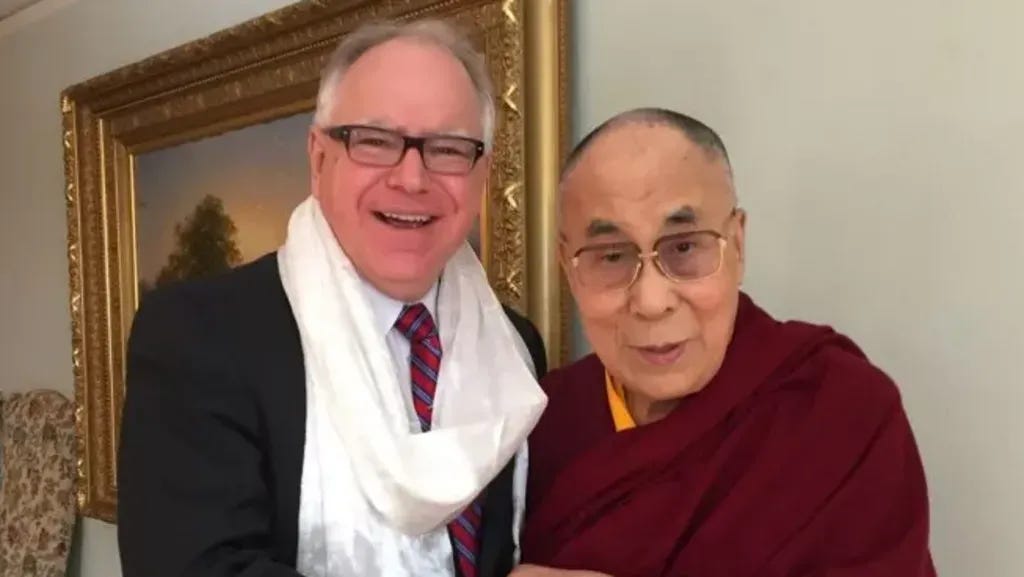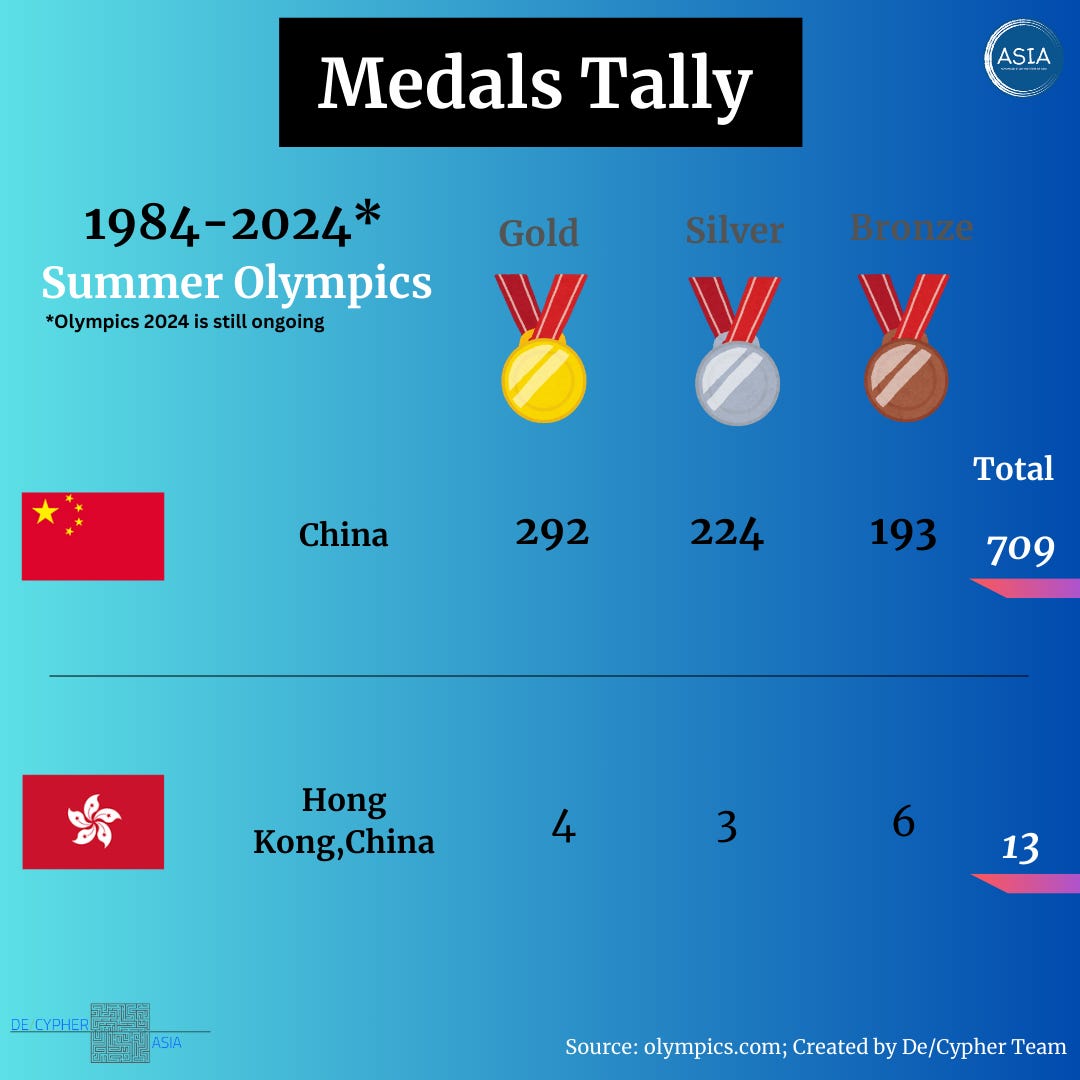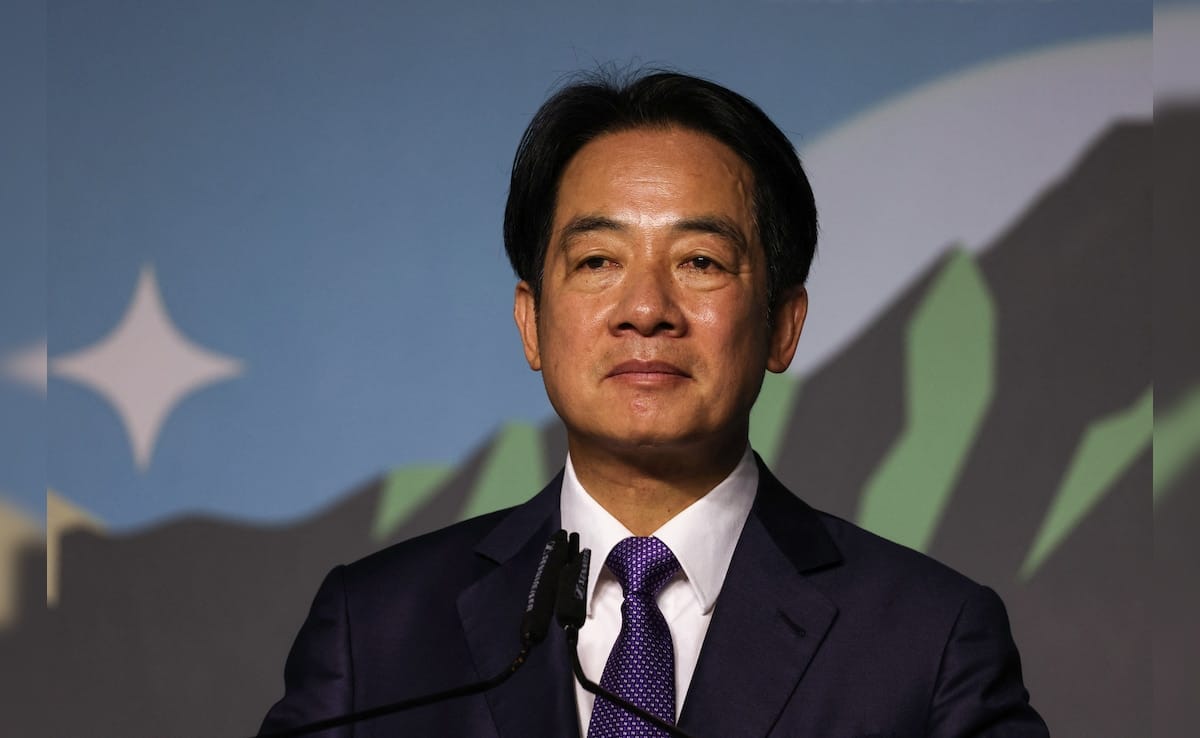China’s Past Ties with Tim Waltz, Asia’s Pivot, and the Role of the Post Office in Shaping Modern China
In this edition, we look at how VP Nominee Waltz's history with China may affect China-US relations if he wins the election alongside Harris, the history of the Chinese post office, and all the latest news from China.
China Quote
"US presidential candidate Donald Trump accused American Democratic leaders of driving “natural enemies” China and Russia together while suggesting he would “get along great” with Chinese President Xi Jinping if he wins back the White House."
De/Cypher Data Dive📈
In the 2024 Paris Olympics, the United States holds the top rank, with China in second place. The Olympics is still ongoing. In 2020 Summer Olympics that were held in 2021 due to Covid-19 pandemic, China claimed 38 Gold, 32 Silver and 19 Bronze medals.
Asia View🌏
China wants to have a word about Tim Walz
Written by Amogh Rai, Research Director, ASIA
The people on Chinese social media have been very curious about the man they think could be the next Vice President of the United States. Tim Walz, the running mate of Kamala Harris spent time in the People's Republic of China between 1989-1990 for the first time. It was an interesting time for the country. After the events of Tiananmen Square, the opening up became very cautious and largely in the economy. The party managed to find a foreign hand in the events leading up to the student and political unrest. For Walz to have been in the country at that time would definitely make him, after the late George H. W. Bush, who served as the US ambassador in Beijing in the 1970s, the only candidate to have a connection with China. Walz, however, is more complicated for the Chinese state; on the one hand, he finds the people of China warm and kind, but on the other hand, insinuates that there is something lacking in the leadership and if only the people were led by a "proper leadership" there is no limit to what the country can accomplish.
In 2016, he differed with Trump's China strategy on economic cooperation but agreed on the South China Sea position of the United States and would want it to stand firm on its stance. For the Chinese officials, he makes life complicated by acknowledging that the Dalai Lama is a leader of the Tibetan people and with whom he once had a "life-changing" lunch. All in all Walz would be a mixed bag for the Chinese state.
One would expect that with the knowledge of frequent visits to the Asian country after his first stint there in 1989-90, Walz would have interesting ideas about dealing with China. For those looking for a fresh approach, there is disappointment in store as Walz looks set to back the party line and continue with the Biden administration's tough line on trade, technology, and Taiwan.
Whoever wins the US elections, the Chinese state will have to withstand a cold, wet, November rain to look forward to.
De/Cypher Signal🚥
Evaluating the Asian Pivot
Written by Priyanka Garodia, Geopolitical Research Analyst - South Asia
The early 2000s was characterised by steadfast economic growth in the Asia-Pacific region that accounted for 40% of global growth. This exponential boom in economic activity was due to multiple reasons including China and India’s unprecedented rise in the economic, political and cultural affairs. It marked a shift in attention in global affairs from Europe to Asia. Cashing in on this economic boom, the United States of America, harnessed the growing power of Asia through a new engagement strategy called the ‘Asian Pivot’.
Spearheaded by the Obama administration, the Asian Pivot allowed America to play a greater diplomatic, military and economic role in the Indo-Pacific region. Trade agreements increased from roughly 3 in 2000 to nearly 50 by 2011. The Asian pivot garnered bi-partisan support across administration and was seen a strategic decision that would allow America to concentrate of emerging countries in the region. One of the most significant outcomes of this pivot was an increased interaction between the US and China.
The Obama administration had a simple goal in mind, through the linking of economic growth with the principles of liberal democracy, it believed that China could be converted to a liberal democratic order. However, this strategy of engagement failed when China continued with its political belligerence. The impact of this failure to get China to comply with global liberal norms was America adopting a defensive position in the Asia-Pacific rather than one of engagement. Rather than increasing trading relations, US policy shifted to export controls, investment screenings and tariff control. Domestic industrial policies were highly scrutinised, and sanctions imposed all to contain China rather than engage in the Indo-Pacific.
The recent trade disputes between China and the US with the recent ban on semiconductors, the signing of the Foreign Investment Risk Review Modernization Act in 2018, multiple rounds of imposing tariffs up to $370 billion on Chinese goods including EVs and solar panels, a ban on imports from Xinjiang citing human rights violations prove that the original goal of the Asian Pivot to deepen economic ties in the Indo-Pacific has failed. National security was given precedence over economic cooperation where the US perceives China as a threat.
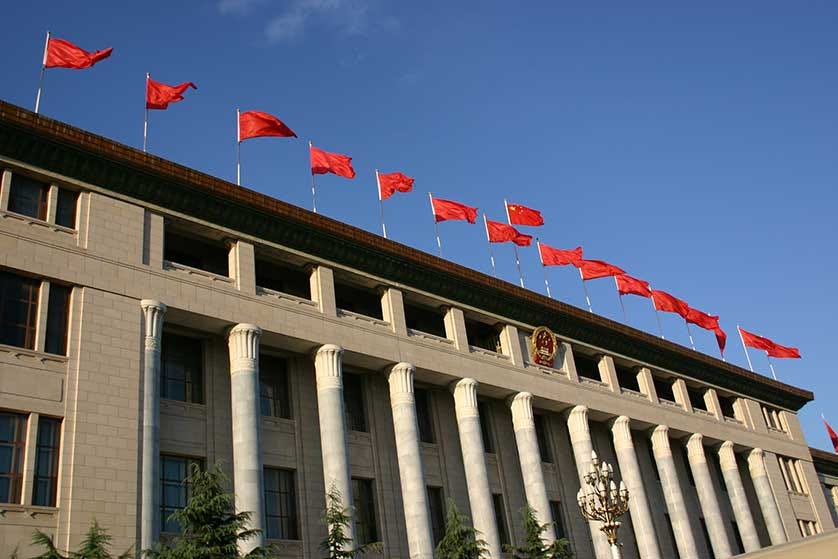
Quick China: Unmissable Stories 📜
Serbia in BRICS
Serbia potentially joining the BRICS could allow Chinese President Xi Jinping to return to the bloc's original enlargement plan, focused on Europe rather than the Middle East. (IO)
China lays out new energy plan
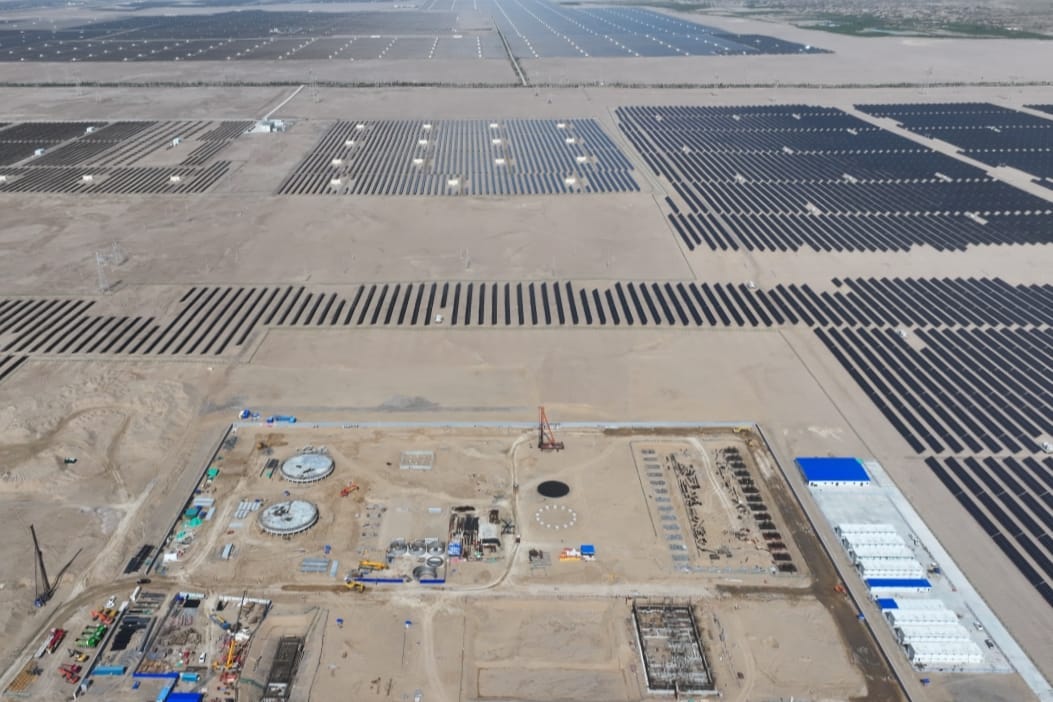
China has announced an action plan to accelerate its power system reform, as the country looks to get more out of the immense amount of clean energy capacity it has added in recent years and cut its reliance on coal. The central government has said that it will launch nine dedicated campaigns over the next three years to accelerate building a new type of power system that can better absorb, allocate and regulate clean energy — whose output can be more intermittent and harder to predict than fossil fuels, according to the plan published Tuesday.
The plan lays out, for the first time, the country’s specific near-term goals regarding the power system reform to help it meet some of its more pressing energy goals, such as accelerating the transition to green energy, ensuring energy security, and achieving its climate targets. (Caixin)
Chinese anti-drone firms use Russian field expertise to woo Global South
Chinese anti-drone companies are plugging the fact they have already exported their goods to places where their technologies can be "combat-proven" to conquer new markets in the Global South. (IO)
US-China Rivalry is Destroying The Middle East
Reducing America’s footprint in the Middle East to focus on China is one of President Joe Biden’s top geopolitical priorities. But extricating itself from the region has proven much harder than he might have thought. As a major regional war looms on the horizon, a deeper, although indirect, cause of the recent downward spiral in the Middle East is the global contagion of the Sino-American rivalry.
Most importantly, America’s pivot to East Asia has changed Iran’s strategic calculus, while Beijing’s response to the escalating US-China rivalry has resulted in a significant increase of its support for Tehran. These two momentous developments have made the Middle East more volatile and conflict-prone.(Minxin Pei, Bloomberg)
Property crisis in China is far from over
Real estate has become the most intense issue affecting China’s economy. In the past, China’s real estate was a focus of investment for all of society. Real estate prices were rising continuously, and it was commonly accepted that every adult should have his own house, which is a unique belief. In this context, more middle-class families kept purchasing – even those not qualified to buy a house. This pushed property prices to new highs in a very short period of time around 2017, a sign a bubble was about to burst.
I noticed that Evergrande started to offer 20 per cent discounts as a selling strategy as early as 2016. It was widely believed this was an individual case limited to Evergrande, as this private developer faced liquidity issues due to excessive debt and a lack of bank support for its loans.
On the contrary, I believed the cause was something much bigger. This was a sales problem for the whole industry – prices had peaked and would start on a downward trajectory. I was the first to urge that attention be paid to the downward trend in real estate prices. I also called on our regulators to perform more stress testing, especially on the banking sector. The banking sector believed that it had sufficient collateral, such as land. But the banks did not carry out sufficient stress tests on the total debt repayment capacity of the Chinese real estate industry.
Because of insufficient stress testing, I also believed that the problems of Evergrande could soon spread to other real estate companies. Policies were only adjusted about one year later, when many real estate companies were on the verge of bankruptcy. (SCMP)
Foreigners invest more in China's Advanced Manufacturing
Despite an overall drop in foreign direct investment (FDI), China says more funds from overseas are being channelled into its advanced manufacturing sector.
“While FDI in the first half of this year was at a relatively high level if we look at it over the span of the past decade, frankly the scale of the investment has dropped on a year-on-year basis, mainly due to a high base from last year,” said Zhu Bing, director of the Foreign Investment Administration under the Ministry of Commerce, at a press briefing on Friday.
From January to June, FDI in China saw a 29.1 per cent year-on-year drop to 498.9 billion yuan (US$69 billion), according to official figures. However, investment in manufacturing increased by 2.4 percentage points, totalling 141.86 billion yuan during the period and accounting for 28.4 per cent of all FDI in the first half of the year.
In particular, FDI in hi-tech manufacturing reached 63.75 billion yuan – also a 2.4 percentage point increase from the same period a year prior. Zhu said the numbers show that foreign investors are “proactively managing their investment plans across industries”, and that China’s FDI landscape has entered a period of “adjustments”. (SCMP)
The Chinese Tech Firms Provide a Snapshot of Chinese Economy
Alibaba Group Holding Ltd., Tencent Holdings Ltd. and JD.com Inc. will provide a snapshot of China’s economy and consumer sentiment, as another somber earnings season is expected in the region. The tech giants remain focused on boosting shareholder returns, so more buybacks might be in store when they report, according to Bloomberg Intelligence analysts Robert Lea and Jasmine Lyu.
“The Chinese technology sector’s balance sheet is strong, with many companies accumulating substantial cash reserves in recent years, providing ample scope to boost shareholder returns via buybacks and dividends,” they said. (Bloomberg)
Made in China Brands Are Getting A Makeover
A new wave of brands is elevating the made-in-China label. With stylish websites and tailored ads, these companies are creating innovative products that compete with Western goods on both quality and price. Narwal, backed by Tencent and ByteDance, has captured more than 10% of the domestic market for robot floor cleaners. Although the firm only started focusing on international markets last year, it expects global sales to soon make up 30% of its total revenue. Its products priced at over $1,000 put them in direct competition with market leader iRobot.
Laifen, a Chinese maker of electric toothbrushes and hair dryers, is undercutting Philips and Dyson on price while still touting a luxe experience. Many of these brands are well known at home, where they’ve benefited from rising consumer nationalism to build substantial businesses. But with China’s economy slowing, consumers spending less and companies responding by cutting prices aggressively, these firms must branch out overseas to grow or maintain profitability.
The problem is venturing abroad exposes them to worsening trade tensions and a potential global demand slowdown. China’s export growth slowed unexpectedly in July, signaling a cooling of global demand that has been vital for keeping the country’s economic growth target of around 5% within reach. (Bloomberg)
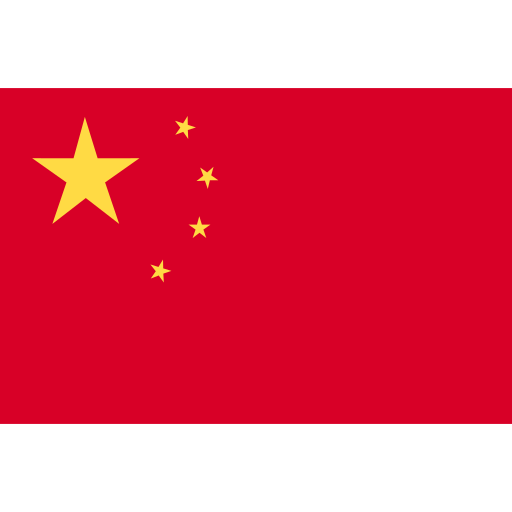
Beyond The Great Wall 🧱
Exploring News About China in Depth
Economy
Chinese Students Are Paying Agents $50,000 for Finance Jobs as Market Sours
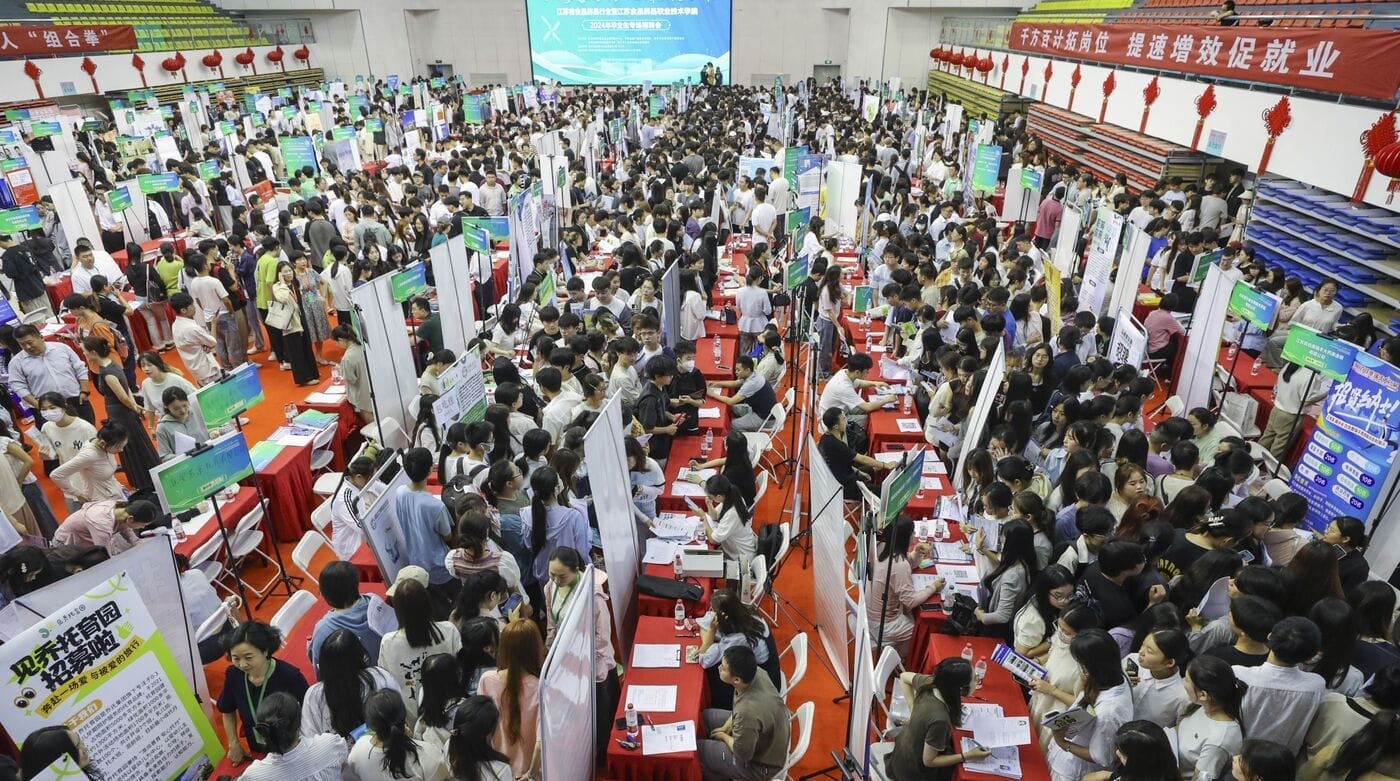
Sharon Chau and Valida Pau write in Bloomberg that Chinese students are increasingly paying up to $50,000 to career coaching agencies to secure finance jobs amid a shrinking job market. With youth unemployment at 13% and finance job openings decreasing, competition has intensified. However, many students are left disappointed, with some agencies over-promising and under-delivering, leading to rising disputes and legal challenges.
China Taps Public Debt to Buy Unused Land from Developers
Kentaro Shiozaki writes in Nikkei Asia that China's government is urging local authorities to use regional bonds to purchase unused land from struggling developers to build affordable housing. While this aims to aid developers and address land use, it risks worsening local government finances if new housing projects do not generate sufficient revenue. The balance of special-purpose bonds has significantly increased, adding pressure on local debt.
Banks Poised to Seize More Buildings in Hong Kong, PwC Says
Dorothy Ma writes in Bloomberg that banks are likely to take more enforcement actions on distressed properties in Hong Kong as the city's property market downturn deepens. PwC’s restructuring head, Christopher So, notes that many properties are already under receivership, with the environment becoming increasingly difficult due to high interest rates, low rental yields, and a historic high office vacancy rate.
China’s Youth Seek Work in Blue-Collar Sectors Amid Changing Mindsets
Jalelah Abu Baker reports in CNA that China’s youth are increasingly turning to blue-collar jobs like housekeeping and technical roles as unemployment remains high. Feng Jiajia, a 24-year-old from Wuxi, left early childhood education to start a housekeeping business, challenging the stereotype that only middle-aged workers fill these roles. This shift reflects a broader change in attitudes, with younger generations valuing autonomy and flexibility in their careers.
‘A Symptom of Economic Malaise’: China’s Youths Escape Urban Pressures at ‘Retirement Homes’
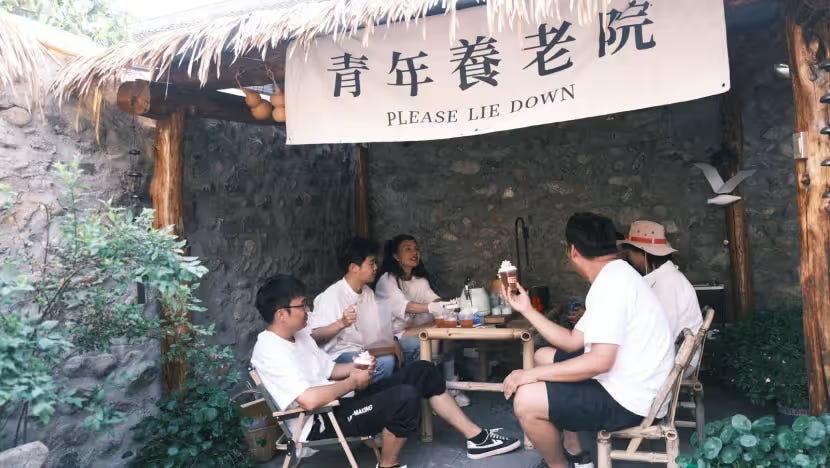
Bong Xin Ying reports in CNA that China’s youth are flocking to “youth retirement homes,” rural communes offering a break from urban life and work pressures. These retreats reflect rising disillusionment with the country's stuttering economy and competitive job market.
World's 1st Large, Ultra-Shallow Gas Field in Ultra-Deep Waters Estimated at Over 100 Billion Cubic Meters
Xinhua reports that the Lingshui 36-1 gas field, located southeast of Hainan, China, is the world’s first large, ultra-shallow gas field in ultra-deep waters. The China National Offshore Oil Corporation (CNOOC) has estimated the original gas in place (OGIP) at over 100 billion cubic meters. The discovery is part of a larger estimate of more than 1 trillion cubic meters in the South China Sea’s Yinggehai, Qiongdongnan, and Zhujiangkou basins.
China Allocates 649 Million Yuan for Flood Response and Disaster Relief
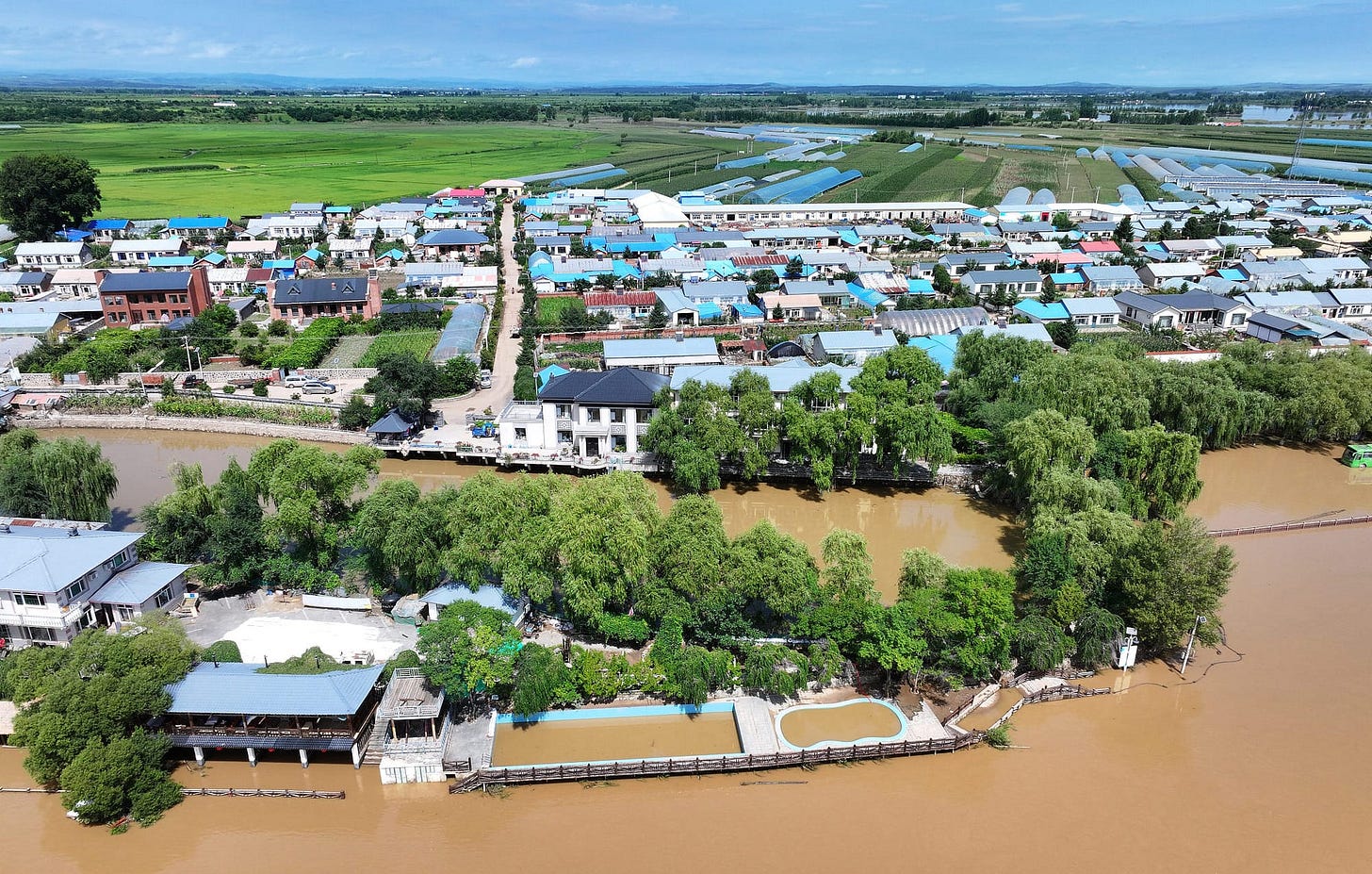
CGTN reports that China's Ministry of Finance has allocated 649 million yuan ($91 million) to support flood response and disaster relief in several regions, including Liaoning, Jilin, and Heilongjiang provinces. The funding will be used for repairing water projects, eliminating safety hazards, and ensuring the safe operation of facilities during the main flood season, which is expected to bring severe weather, including typhoons, to the southern and eastern regions.
Colin Huang is now the richest Chinese Person
Bloomberg reports that Huang, now 44, has become China’s richest person, according to the Bloomberg Billionaires Index. With a $48.6 billion fortune, he displaces Zhong Shanshan, the country’s bottled-water king who has held the top spot since April 2021.
Internal Politics 🏛️
Former Senior Legislator of China's Guangxi Indicted for Bribery
Xinhua reports that Zhang Xiulong, former vice chairman of the Guangxi Zhuang Autonomous Regional People's Congress, has been indicted for bribery. The prosecution, conducted by the people's procuratorate of Changde City in Hunan Province, accuses Zhang of abusing his positions to profit others and accepting large sums of money and valuables illegally. The case has been filed with the city's intermediate people's court following an investigation by the National Commission of Supervision.
China Wants to Start a National Internet ID System
The New York Times reports that China’s government is proposing a national internet ID system to centralize user verification across online platforms, aiming to protect privacy and reduce data collection. Critics argue it could enhance state control over internet activity, heightening concerns about surveillance. The system, which would be voluntary for websites and apps, is currently open for public comment until the end of August.
China Mutes Law Professor on Social Media After Cybersecurity ID Plan Criticism
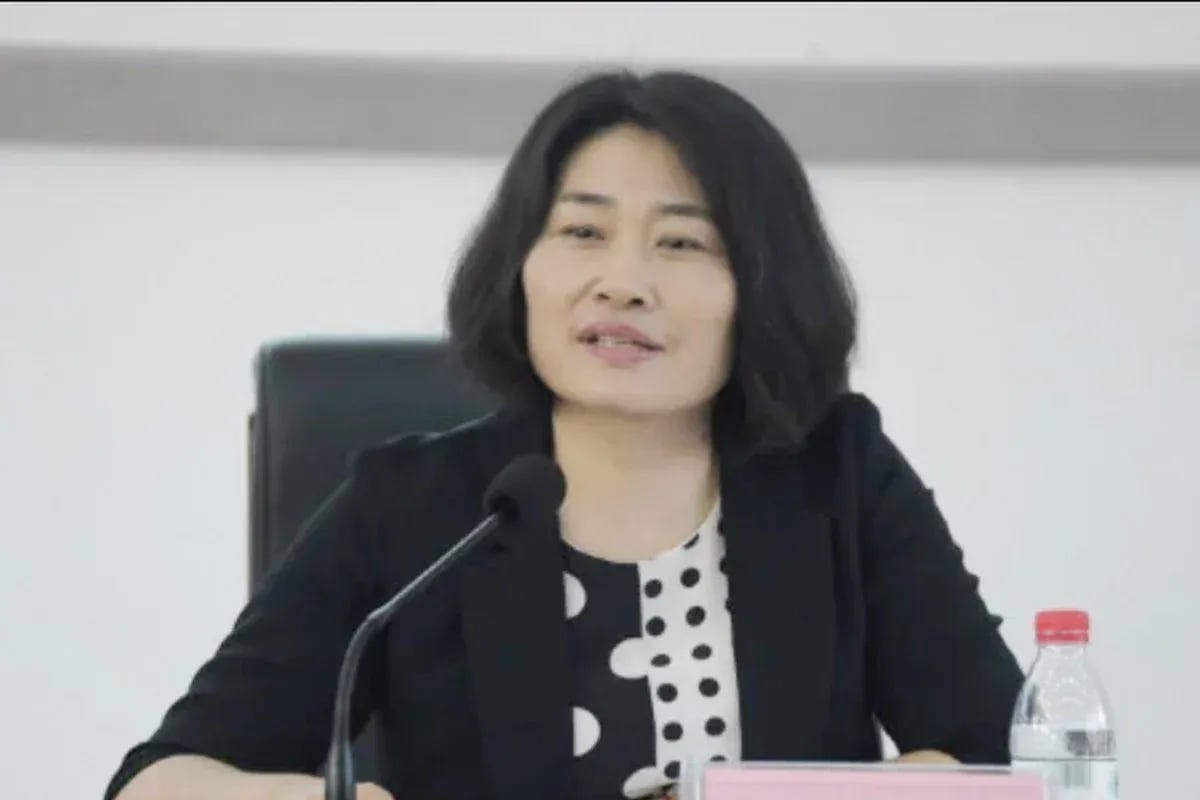
SCMP reports that Chinese law professor Lao Dongyan from Tsinghua University has been silenced on Weibo after criticizing the proposed national cybersecurity ID system. Lao's account, with nearly 800,000 followers, was muted for 90 days. She compared online attacks against her to Cultural Revolution-era tactics and warned of the system’s potential to increase government surveillance and restrict internet access.
China And The World🌐
Chinese FM Holds Talks with Jordanian Counterpart on Mideast Situation
CGTN reports that Chinese Foreign Minister Wang Yi held a phone discussion with Jordanian Foreign Minister Ayman Safadi about the escalating situation in the Middle East following the assassination of Hamas leader Ismail Haniyeh. Both parties condemned the violence and stressed the need for an immediate ceasefire in Gaza. Wang Yi affirmed China’s commitment to supporting peace efforts and maintaining communication with Jordan to prevent further escalation.
Taiwan President Says Defense Budget Will Hit Record High Next Year
NHK World reports that Taiwanese President Lai Ching-te announced that Taiwan's defense budget will reach a record 647 billion New Taiwan dollars (approximately 20 billion USD) next year. The budget includes funds for advanced fighter jets, reflecting Taiwan's commitment to strengthening self-defense and deepening cooperation with democratic allies amid concerns of a potential Chinese invasion. The proposal will be reviewed by the parliament, where the opposition holds the majority.
China Anti-Doping Agency Calls for Investigation into USADA
Xinhua reports that the China Anti-Doping Agency (CHINADA) has demanded an independent investigation into the United States Anti-Doping Agency (USADA) for violating the World Anti-Doping Code. CHINADA criticized USADA for covering up doping violations by allowing athletes to compete while acting as undercover agents, a practice it called a "serious breach" of international rules. CHINADA urged the U.S. to address its systemic doping issues and governance flaws.
‘Natural Enemies’ China and Russia Brought Together by US Democratic Leaders: Donald Trump
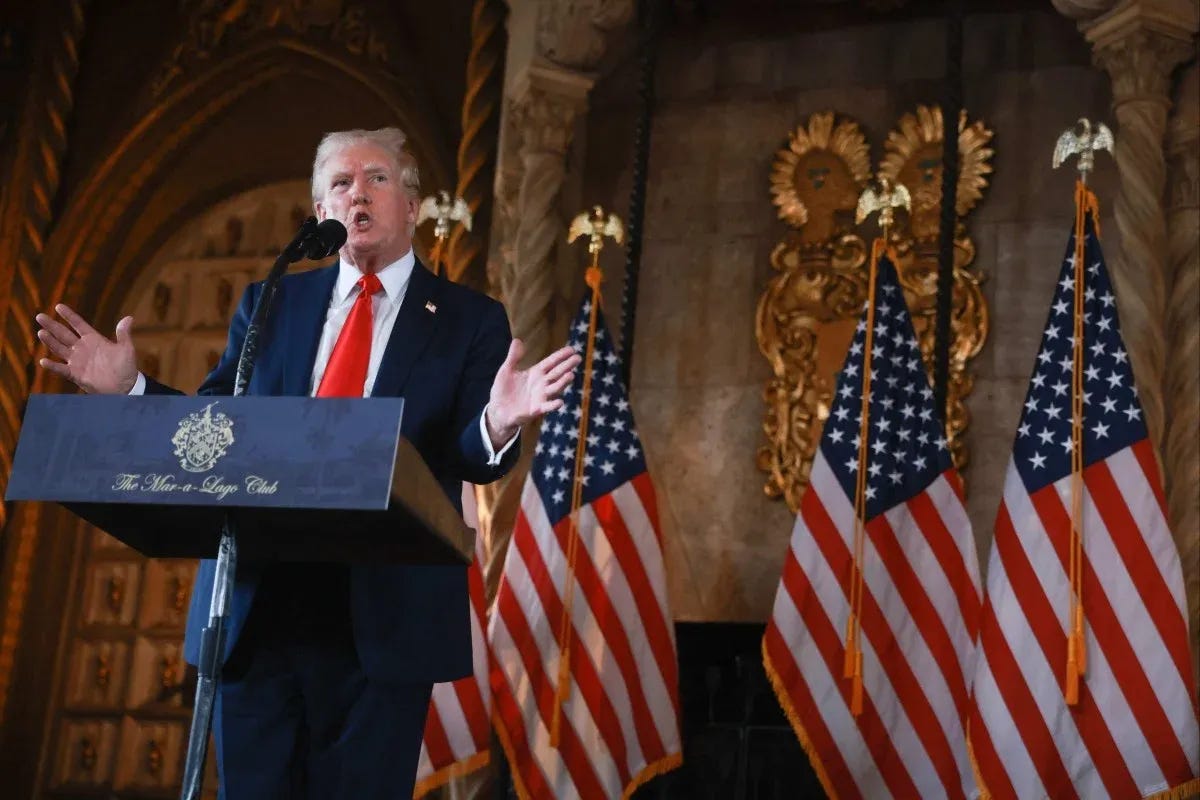
SCMP reports that Donald Trump accused US Democratic leaders of driving China and Russia, historically "natural enemies," into closer cooperation. He suggested that if re-elected, he would "get along great" with Chinese President Xi Jinping, despite previously blaming him for the COVID-19 pandemic. Trump also claimed that the Russia-Ukraine war would not have occurred under his presidency, criticising previous administrations for mishandling US-China relations.
Chinese Academic Convicted of Acting as Foreign Agent in U.S.
Reuters reports that Wang Shujun, a Chinese-American academic, was convicted in Brooklyn federal court for acting as an illegal agent for China's government by spying on pro-democracy activists in New York. Wang, who portrayed himself as an opponent of the Chinese Communist Party, shared information with China’s Ministry of State Security. He could face up to 25 years in prison when sentenced in January 2025. The case is part of the U.S. crackdown on "transnational repression."
US Bans Imports from Five More Chinese Companies Over Uyghur Forced Labor
U.S. News & World Report reports that the United States has banned imports from five additional Chinese companies over alleged involvement in forced labor of Uyghurs in Xinjiang. The companies, including Hong Kong-based Rare Earth Magnesium Technology Group Holdings and Zijin Mining Group's subsidiary, are now on the Uyghur Forced Labor Prevention Act Entity List, which restricts imports linked to human rights abuses. Beijing denies the allegations, calling them a political tool to undermine China's development.
Tesla Recalls 1.6 Million Cars in China Over Hood-Lock Problem
Bloomberg reports that Tesla has recalled over 1.6 million vehicles in China due to a fault with the hood lock, which could prevent drivers from noticing an unlocked front hood. This issue could lead to the hood opening while driving, increasing the risk of collisions. Tesla will issue an over-the-air software update to fix the problem.
South China Sea: Beijing Bankrolls Science Missions as Conflict Heats Up Waterway
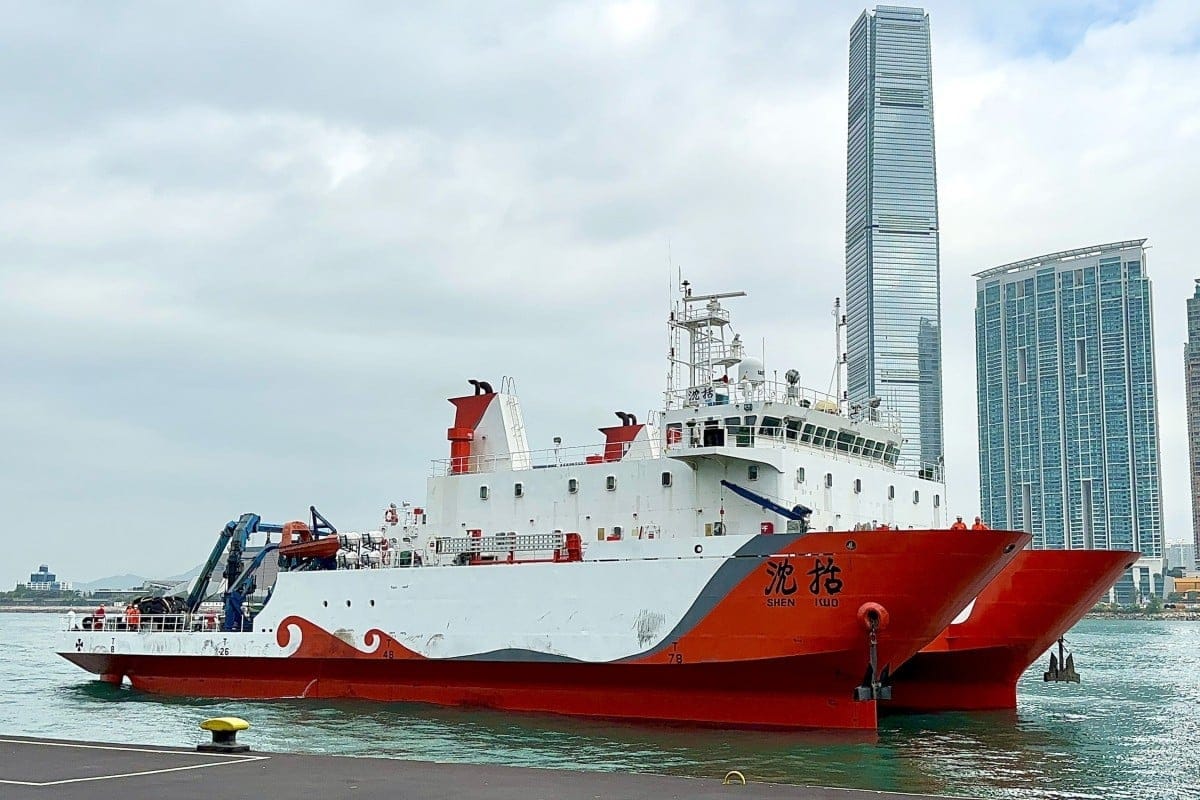
SCMP reports that China has intensified its investment in scientific research in the South China Sea, using advanced vessels and technology to explore marine biology, fisheries, and mineral resources. This move coincides with rising tensions in the region, particularly with the Philippines, as Chinese studies highlight ecological concerns while emphasizing their claims over disputed areas. The research is seen as part of Beijing's broader strategy to assert sovereignty in the contested waters.
North Korea expert, missing for months, detained in Switzerland for espionage
NK News reports that Craig, a Canadian North Korea expert and former UN official, has been detained in Switzerland on suspicion of espionage, potentially for China. Swiss authorities arrested him after observing meetings with a suspected Chinese spy, where he allegedly exchanged information about North Korean diplomats for cash. The case is unusual as Switzerland typically prefers suspected spies to leave the country quietly. Craig has been held in pretrial detention for several months, with charges yet to be made public.
How China’s Communist Party is Building Political Schools and Influence in Africa
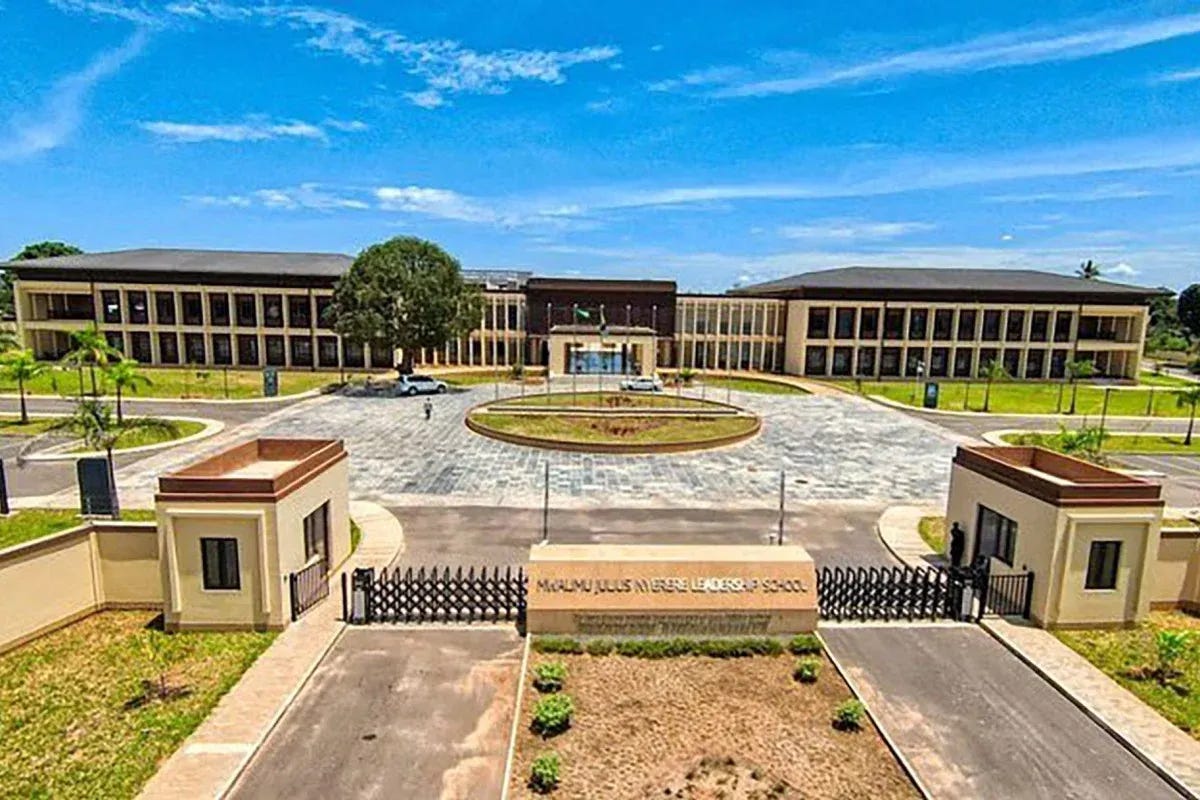
SCMP reports that China is expanding its influence in Africa by constructing leadership schools for political parties, such as the Mwalimu Julius Nyerere Leadership School in Tanzania. These schools promote China's development model, helping to train future leaders and strengthen party-building efforts. This initiative is part of China's broader strategy to increase ideological influence and foster long-term relationships with African political entities.
HP's China Shift and Infineon in Malaysia
Nikkei Asia reports on HP's strategic move to relocate at least 50% of its PC production outside China, with Thailand emerging as a key hub. Meanwhile, Infineon has begun production at its largest power chip plant in Malaysia, positioning the country as a major player in the global semiconductor supply chain amid growing investment due to U.S.-China trade tensions.
Tech🧑💻 in China
China Leads Global Green Patent Applications with Over 50% Share
CGTN reports that China accounted for over half of global green and low-carbon patent applications in 2023, reflecting its leadership in sustainable technology development. The country's strong performance includes 48% of global energy storage patents and the highest number of applications for solar and hydrogen energy technologies. China has maintained its position as the world's leading filer of patent applications since 2019.
How the post office shaped the modern China?
Written By Farheen, Policy & Trust Analyst
During the late Qing dynasty (1850s-1916), the slogan "self-strengthening through reform" resonated throughout a China which was grappling with foreign imperialism, and dynastic decline. Amidst these external and internal pressures, a seemingly mundane institution emerged as an unlikely catalyst for modernization: the Chinese Post Office.
Its establishment offers insight into the Qing government that adopted some measures of flexibility and reforms as it modernized during conflicts. Its continuation can be traced in the reformist tradition through the contemporary projects of modernization to further China’s presence on the international level.
In the book, The Making of China’s Post Office: Sovereignty, Modernization, and the Connection of a Nation by Weipin Tsai delves into how the establishment of this institution offers a glimpse at the political maneuvering for reforms, and the scrutiny that any foreign interference received during that period. The story of China’s Post Office establishment focuses on Robert Hart, who came to China as a young translator in 1854. He quickly grew into the role of inspector general of China’s Imperial Maritime Customs Service. From 1861 to 1911, Hart initiated major infrastructure projects, from port facilities and lighthouses to meteorology and mapmaking services. He was looking to adopt a modern postal system influenced by those in Britain, Germany, and the United States. Yet, for all his achievements, his efforts to establish the Post Office took 35 years. This shows the political dynamics of the Qing court and their hesitancy to adopt foreign models of reform.
By 1861, the Qing court accepted that Western foreigners and their new ideas would stay in China. This led them to set up the Zongli Yamen (Office to Handle Affairs from All Countries) and start the Self-Strengthening Movement, a set of changes to modernize China. Empress Dowager Cixi had a big impact on these changes running China from the shadows for almost 50 years. Hart was one of many outsiders the Qing government hired during this time. He earned the trust of the Manchu royal family and top officials in Beijing, and by the 1880s, the Customs Service brought in steady money for the government. Even with his successes strong national feelings and doubts about foreign sway made it hard for Hart to create the post office.
Before the national post office, China relied on two main postal systems: a weak military mail service with corruption and high expenses known as the military post office, and private delivery service known as letter hongs, providing middle, long and short sailing mail carriers. However, neither of these networks fulfilled the growing need for a unified information network. Officials seeking control over provincial governors, as well as concerns concerning Hart’s authority and British presence, thwarted Hart’s endeavors time and time again. Yet due to China’s defeat in the First Sino-Japanese War conditions became favorable for a change within the Chinese sphere which allowed Hart to get approval for the Imperial Post Office in 1896. Originally established with financial support from the Customs Service, the primary focus was on public recognition and engaging local supporters. Hiring Chinese employees in higher positions, using symbols from Chinese culture, and making it accessible was key to building trust and integration with the citizens. Further strengthening its influence was the aesthetic appeal of post office construction designs which shaped cities’ scenery with intricate structures.
Through such efforts the Post Office became official in 1906 under the Ministry of Posts and Communication which controlled Posts, Railways, Steam Navigation, and Telegraphs. Such a decision ssignaledfuture administrative changes within the Qing government's official hierarchy. Beyond delivering letters, the Imperial Post Office evolved into a political and even a cultural symbol of the uniting force and the sovereignty of the empire, especially in the northern, peripheral regions of China by providing flow of information. To quote Lane Harris, a Chinese Historian, from his paper, ‘It brought ‘from the lowliest peasant with an orthodox bike for transportation to... Jiang Jieshi and Mao Zedong’. Beyond that, It also helped employ and train many people in the country, prompted the foundation of modern administrative systems and making people loyal to central authority.
While the Qing dynasty was overthrown in 1911, the establishment of Imperial Post Office offers a crucial perspectivity study the efforts towards modernization. What’s more, as CCP asserts its model of modernization is different from that of the West, yet the measures they take to achieve their goals resemble actions of the previous regimes in the pursuit of power consolidation and suppression of any potential competitors.
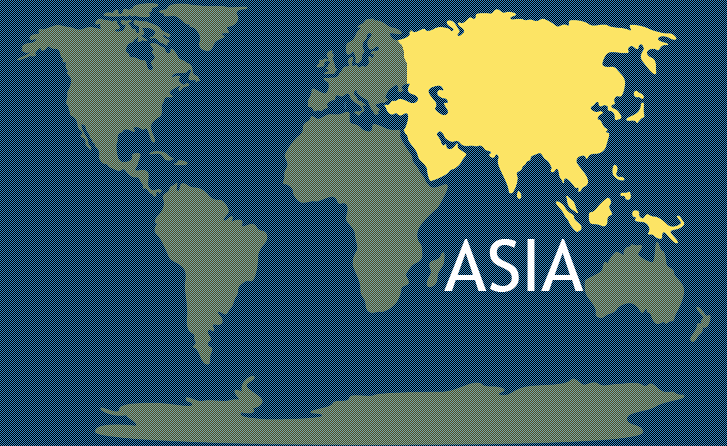
News From Asia
Friday
The Mexican president rejected a request from Ukraine's government to arrest Vladimir Putin if he violates an international arrest warrant and attends Mexico's next president's inauguration in October. (Reuters)
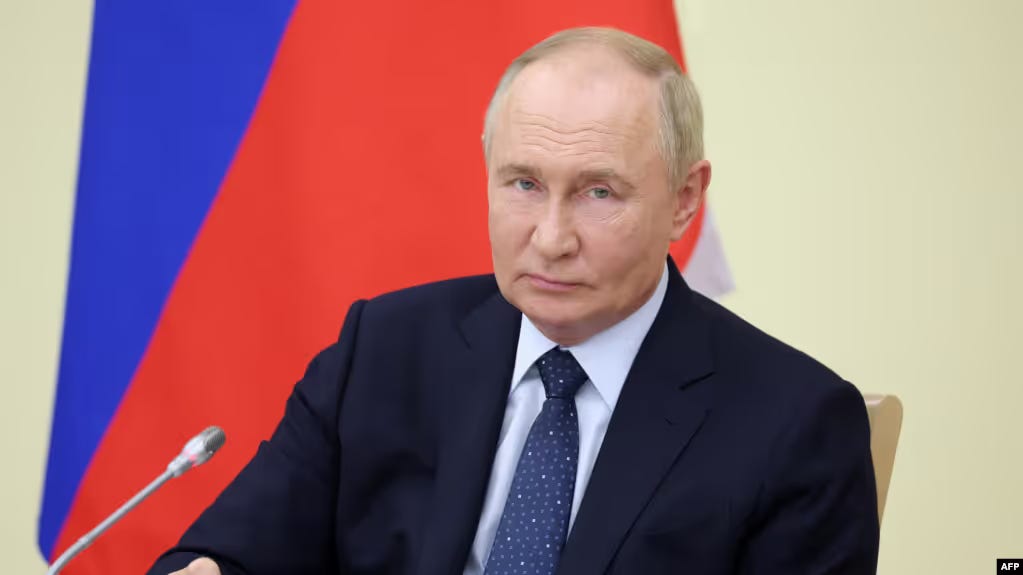
Venezuelan President Nicolas Maduro escalated tensions with social media platform X and its owner Elon Musk on Thursday by banning the platform in the South American country for ten days in the wake of a disputed presidential election. (US News)
The leaders of the US, Egypt, and Qatar have urged Israel and Hamas to resume negotiations for a ceasefire and hostage release, citing no excuses for further delay. (The Guardian)
The man regarded as the heir apparent to Sri Lanka's powerful Rajapaksa family will run for president in September, his political party announced Wednesday, in an apparent attempt to reclaim his family's lost power after a humiliating setback two years ago during an unprecedented economic crisis in the Indian Ocean island nation. (AP)
Thursday
A strong earthquake with a magnitude of 7.1 shook southern Japan but no major damage was reported and only relatively small tsunami waves lashed the coast. (CNA)
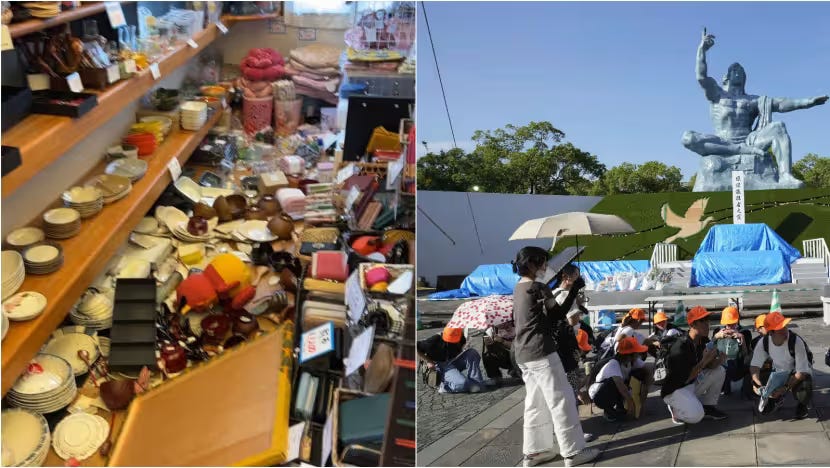
A ship’s captain reported an attack from two small crafts, 45 nautical miles south of Yemen’s Mokha, with a rocket-propelled grenade exploding near the vessel, the United Kingdom Maritime Trade Operations (UKMTO) agency said on Thursday. (MEM)
Both suspects in a foiled plot to attack Taylor Swift shows in Vienna appeared to be inspired by the Islamic State group and al-Qaida, Austrian authorities said Thursday, and investigators found bomb-making materials at one of their homes. (AP)
Saudi Arabia’s King Salman issued a royal decree that allows the Cabinet to convene even if he or Crown Prince Mohammed bin Salman do not chair it, Saudi Press Agency said on Thursday. (Arab News)
Wednesday
Hyundai Motor Company, a South Korean automaker, will invest 1 billion baht (US$28 million) in Thailand to establish an assembly facility for electric vehicles (EVs) and batteries, according to the country's Board of Investment. (Bangkok Post)
Kamala Harris made her campaign debut on Tuesday (Aug. 6) alongside new White House running mate Governor Tim Walz, who delivered a stinging rebuke of their Republican rival Donald Trump, questioning his commitment to the country and skewering his record in office. (CNA)
The British government has urged Elon Musk to act responsibly after the tech billionaire used his social media platform X to unleash a barrage of posts that officials fear will exacerbate the country's violent unrest. (AP)
Nobel laureate Muhammad Yunus will lead Bangladesh's interim government after long-time Prime Minister Sheikh Hasina fled the country amid a mass uprising that killed hundreds of people and brought the South Asian country to the brink of chaos. (Prothom Alo)
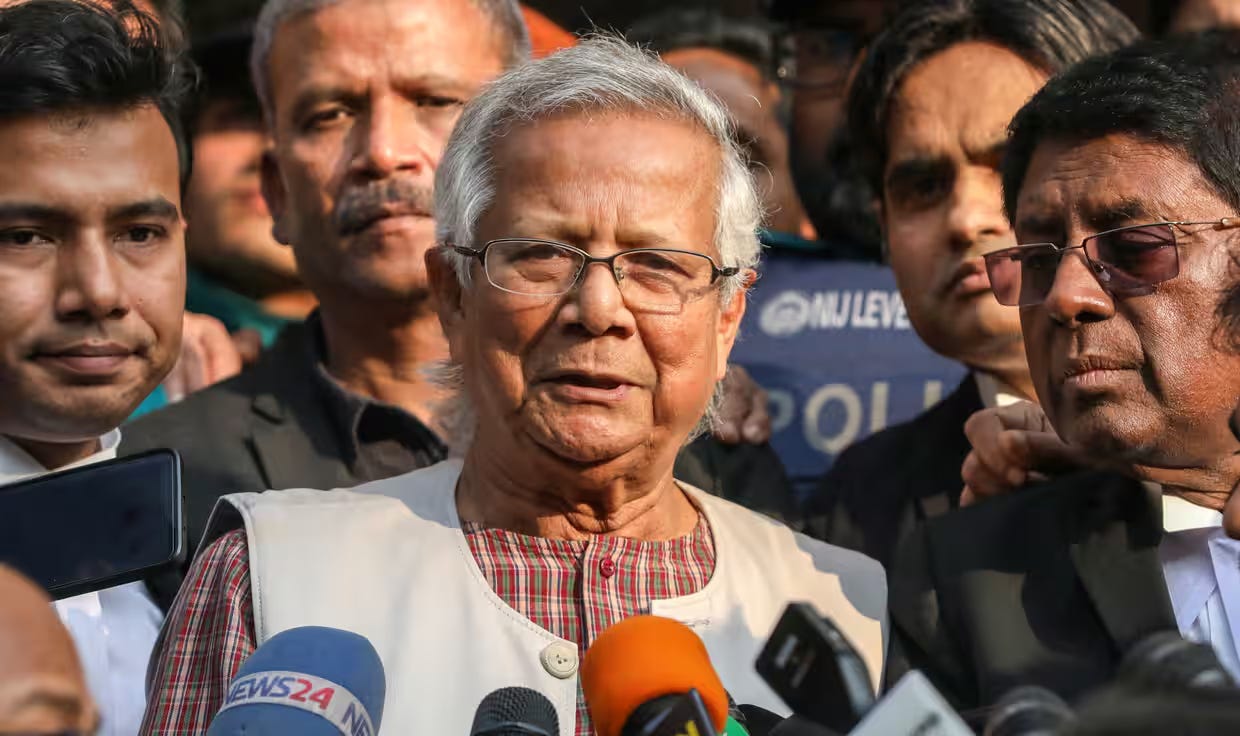
Tuesday
Qatar's Emir Sheikh Tamim bin Hamad Al-Thani and US President Joe Biden spoke on the phone on Tuesday about joint mediation efforts to end the Gaza war as well as the latest developments in the strip. (The Jerusalem Post)
The US Department of Commerce announced yesterday that it intends to award SK Hynix Inc up to $450 million in grants to help fund an advanced packaging plant and research and development (R&D) facility for artificial intelligence (AI) products in Indiana. (Taipei Times)
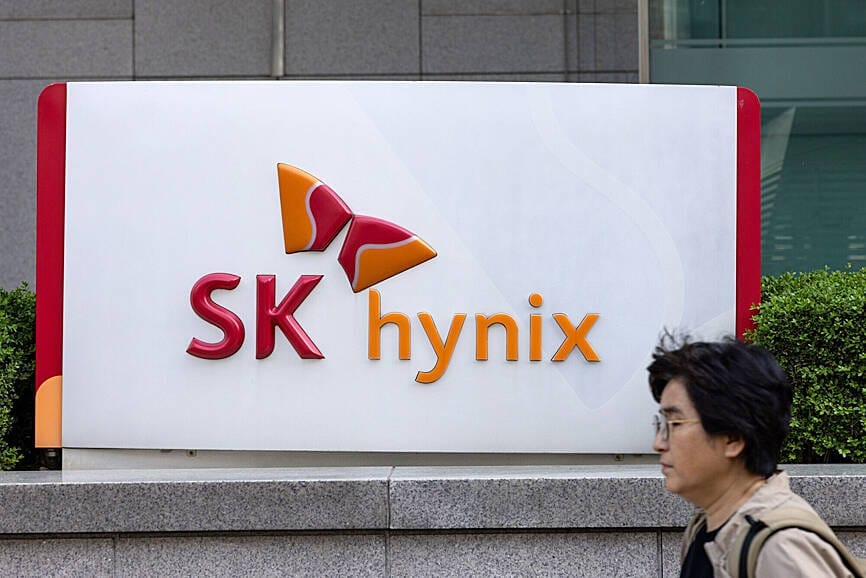
North Korea said Germany's participation in a US-led UN border monitoring force on the Korean peninsula would exacerbate tensions, accusing Washington of establishing an Asian version of NATO, according to state news agency KCNA on Tuesday. (Reuters)
Hamas, the Palestinian militant group, announced on Tuesday that Yahya Sinwar, its top official in Gaza and the mastermind of the Oct. 7 attacks in Israel, has been named the new leader. (CBS)
---


